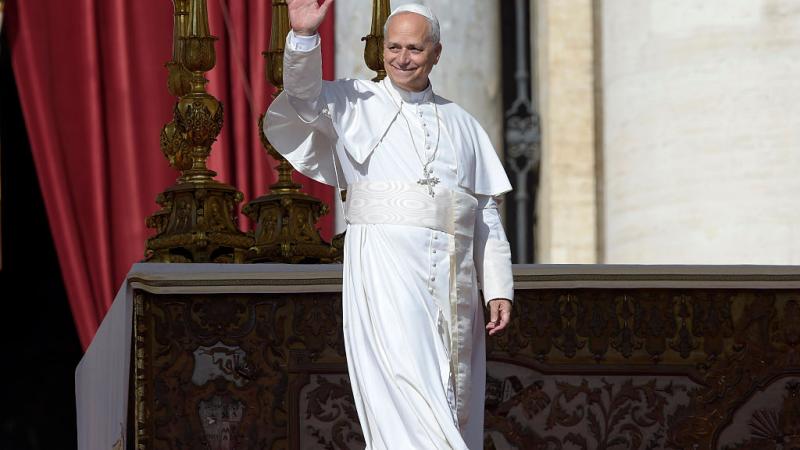Appeals court reinstates religious challenge to COVID vaccine mandate for healthcare workers
Maine didn't do its homework before claiming religious exemptions cause unique harm to public health goals, unlike medical exemptions state will grant, three-judge panel finds.
Maine will again have to defend its refusal to grant religious exemptions to a COVID-19 vaccine mandate for non-remote healthcare workers under a ruling by the 1st U.S. Circuit Court of Appeals.
A three-judge panel on Thursday reversed and remanded a trial court ruling that threw out the First and 14th Amendment challenge by seven fired healthcare workers, finding it "plausible … in the absence of further factual development" the mandate privileges secular exemption requests "without adequate justification."
The Title VII employment discrimination claim won't go back to trial court, however, because the panel agrees violating the mandate "would have caused undue hardship" for the plaintiffs' employers, namely the liability and disruption they could face for their employees' noncompliance.
The Maine law has an unusual history among COVID vaccine mandates.
The state Legislature eliminated religious and philosophical exemptions to broader vaccine mandates for healthcare workers in 2019. The change took effect in April 2020 and was upheld by voters in a "veto referendum" the month before, the panel's summary states.
The state amended the rules a year later to "cross-reference the exemptions allowed by statute," and the Legislature increased the penalties for noncompliance in June 2021: fines from $250 to $1,000 per "uncorrected" day and immediate license suspension, both under the discretion of the Maine Department of Health and Human Services.
The COVID vaccination mandate was made explicit that August in an "emergency rulemaking" and took effect in November 2021, the ruling states. One of the original defendants was Maine Centers for Disease Control and Prevention Director Nirav Shah, who has since become a top official at the U.S. CDC.
The seven plaintiffs all cited their objection to the vaccines based on the use of aborted fetal cell lines in their development and volunteered to wear masks, submit to "reasonable testing and reporting requirements" and monitor for COVID symptoms. All were fired.
The 1st Circuit was initially unsympathetic to the plaintiffs, who used pseudonyms in the original August 2021 lawsuit, filed before they were terminated. It refused to issue a preliminary injunction, the Supreme Court likewise rebuffed them and media organizations successfully compelled the plaintiffs to name themselves.
Their lawyers at Liberty Counsel accused the newspapers of seeking their names for "ideological reasons." Chairman Mat Staver told the Maine Wire the only plausible reason was to intimidate the plaintiffs "so they would withdraw from the case, but they did not."
The trial court deemed the mandate "a religiously neutral law of general applicability that is rationally related to Maine's legitimate public health interests," and thus not unconstitutional.
The state justified allowing only medical exemptions to "reverse the trajectory of falling vaccination rates" to prevent disease spread in healthcare facilities "so that all persons medically unable to be vaccinated [can] be protected," but this exemption could undermine the goal no differently than religious exemptions, the panel found.
Maine has not provided "an independent interest in maximizing vaccination rates apart from the public health benefits of doing so" and failed to conduct a "comparability" analysis based on "the risks various activities pose," as the Supreme Court requires, according to the ruling.
Recognizing religious exemptions could also further the state's asserted interest in protecting "healthcare capacity" by making "more workers available," which is cited in the medical exemption, the panel noted.
The plaintiffs don't have a slam-dunk case on remand, however.
The 1st Circuit theorized that "additional facts might show that the two types of exemption are not comparable" for public health purposes – perhaps medical exemptions are "likely to be rarer, more time limited, or more geographically diffuse than religious exemptions."
The state cannot get out of the litigation by citing federal law that preempts broader medical grounds for exemption as a condition of Medicare and Medicaid funds, which Maine claims would limit the number of medical exemptions it can grant, because it hasn't done its homework on how the federal mandate would affect its own.
Maine said only that "many" facilities and workers fall under the federal rule and didn't specify how many workers might qualify for federal medical exemptions "based on known allergies" to COVID vaccines or how many might seek religious exemptions for comparability purposes, the panel said.
"It remains plausible that the Mandate's medical exemption creates comparable risks to those that would be created by a religious exemption, warranting strict scrutiny," according to the ruling, referring to the most challenging standard of judicial review for governments to meet in constitutional challenges.
But the panel emphasized it hasn't determined "what standard of scrutiny should ultimately apply to the free exercise claim" or whether the mandate would survive that standard.
Because the state has not explained how the appeals court could both reinstate the free exercise claim and reject the 14th Amendment equal protection claim, the 1st Circuit will also reinstate the latter.
Liberty Counsel celebrated the ruling by emphasizing that Assistant Attorney General Kimberly Patwardhan got dinged in oral argument May 4.
Judge Sandra Lynch, a Clinton appointee who wrote the resulting opinion, said the state's motion to dismiss the case at this stage "rather than allow some factual development" showed that Patwardhan "obviously" had not read relevant Supreme Court precedent.
"Gov. Janet Mills trashed the health care heroes who were front line responders," Liberty Counsel's Staver said. "But instead of a heroes’ parade, Mills violated their religious rights and booted them into the unemployment lines."
Danna Hayes, special assistant to Maine Attorney General Aaron Frey, told Just the News "our office doesn’t comment on pending litigation."
The Facts Inside Our Reporter's Notebook
Videos
Links
- reversed and remanded a trial court ruling
- Maine Wire
- Liberty Counsel celebrated the ruling
- oral argument May 4














